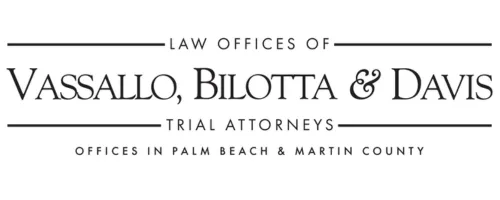PERMANENT PARTIAL DISABILITY
Impairment Benefits or Permanent Partial Disability Compensation
How Do I Get Impairment Benefits or Permanent Partial Disability Compensation
What are impairment benefits or permanent partial disability benefits? If you have been placed at maximum medical improvement (MMI) and the authorized doctor has assigned you a permanent impairment rating (PIR), you will be entitled to impairment benefits (IBs). The employer/carrier must pay impairment benefits within 14 days of you being placed at maximum medical improvement. The amount you receive will depend on your permanent impairment rating (PIR) and will be paid at 75 percent of the claimant’s average weekly temporary total disability benefit. The amount of Impairment Benefits can be calculated as follows:
- Two weeks for each percentage point from 1-10%
- Three weeks for each percentage point from 11-15%
- Four weeks for each percentage point from 15-20%
- Six weeks for each percentage point above a 20% permanent impairment rating.
If you disagree with the permanent impairment rating (PIR) assigned by your authorized doctor, you may obtain an Independent Medical Examination (IME). It’s important to talk to a board certified worker’s compensation lawyer before using an IME.
Am I entitled to Pain and Suffering Damages for my Florida Workers Comp Claim?
Although there is pain and suffering in workers’ compensation cases, an injured worker is not entitled to any pain and suffering damages. Pain and suffering damages are only permitted in a personal injury case – for example a motor vehicle accident claim. So for those injured workers who have been hurt at work, the short answer is no, unless you have a separate personal injury claim available to you. The payment of impairment benefits is the only benefit that the injured worker is entitled to outside of lost wages or medical treatment.
Injuries That Qualify for Impairment Benefits
Almost all injuries may qualify for a permanent impairment rating and therefore, qualify for impairment benefits (IBs). If the authorized work comp doctor assigns you a permanent impairment rating (PIR), you will be entitled to IBs. Some examples of common workplace injuries that can qualify as permanent partial disabilities in Florida include:
Back Injuries – Back injuries are often assigned a permanent impairment rating (PIR). Unfortunately, it’s fairly common to injure your back on the job and back injuries often result in permanent long-term physical limitations. A back injury may limit your range of motion, strength, or simply cause pain. Permanent back injuries resulting from on the job injuries are often assigned a PIR.
Neck Injuries – As with back injuries, neck injuries suffered at work are often assigned a permanent impairment rating (PIR). Neck conditions may limit your range of motion, cause pain in your neck, shoulders, or headaches. PIR are often assigned to claimant’s that have injured their neck at work.
Hearing Loss – Hearing loss can occur from prolonged exposure to loud and excessive noises on the job. Losing your hearing can have a huge impact on all aspects of your life, including your ability to work. If you are suffering from on the job-related hearing loss, you should speak with a board certified workers’ compensation lawyer about filing for permanent partial disability benefits or even permanent total disability benefits.
Extremity or Joint Injuries – Shoulders, knees, elbows, wrists, and ankle injuries are all too common workplace accidents. Extremity and joint injuries often have long
lasting permanent problems. These types of injuries often have permanent impairment ratings (PIR) assigned to them and entitle them to payment of IBs.
Carpal Tunnel Syndrome – Carpal tunnel syndrome often occurs in assembly line workers, office workers, warehouse workers, and employees who work with tools on a regular and repetitive basis. Carpal tunnel syndrome can be painful and restricts the use of workers to use their hands and wrists while trying to perform functions of their job. Carpal tunnel syndrome is often assigned a PIR.
Loss of Limbs – Losing a body part due as a result of a work place accident and trauma or amputation is devastating. Injured workers living without all of their limbs is a obvious daily reminder of how dangerous workplace accidents can be. If you have lost all or part of a limb or digits due to a work-related accident, please contact a work comp lawyer to discuss permanent partial disability benefits.
Post–Traumatic Stress Disorder (PTSD) – Physical injury from a work accident including loss of limbs, explosions, car accidents, truck accidents, falls, electrocutions, personal injury claims and other work-related accidents leave may cause the injured worker to suffer from post-traumatic stress disorder (PTSD). Living with PTSD can be extremely hard. Injured workers suffering from this psychological disorder should receive medical counseling and treatment. PTSD may not cause physical imitations but it can still result in impairment benefits for injured workers in Florida.
Repetitive Trauma – Injured workers may have a permanent impairment rating due to carpal tunnel syndrome, hearing loss, repetitive lifting, bending, or stooping.
These repetitive motions could result in injuries such as tendonitis, tennis elbow, bursitis, golfer’s elbow, De Quervain’s tenosynovitis, ulnar tunnel syndrome or a torn rotator cuff. If assigned a permanent impairment rating through workers’ compensation in Florida, the injured worker would be entitled to IBs.
Traumatic Brain Injuries (TBI) – Injured workers who have experienced head trauma resulting in neck pain, concussions, or traumatic brain injuries (TBI) may be entitled to Impairment Benefits (IBs). While certain employees will recover from concussions with rest, other types of traumatic brain injuries (TBI) result in a high risk for permanent damage. Injured workers who suffer permanent brain injuries are often eligible for workers’ compensation impairment benefits and may qualify for permanent total disability benefits with the help of an experienced workers’ compensation lawyer.
Vision Loss – Vision loss is a permanent injury that can result from trauma to the eye, falls, flying debris collisions or any other on the job injury. Unfortunately, most workers who suffer permanent vision loss will qualify for impairment benefits (IBs) and suffer a permanent impairment rating (PIR) under Florida’s workers’ compensation law.
Impairment Benefits (IBs) vs Pain and Suffering
In workers comp, there are no specific benefits for pain and suffering. There are no personal injury monetary damages. So pain and suffering cannot be considered when determining whether you are entitled to compensation benefits such as temporary total disability, temporary partial disability, permanent total disability, or permanent partial disability/impairment benefits. Determining what compensation benefits you qualify for isn’t always straight forward. A West Palm Beach work comp attorney that specializes in impairment benefits/permanent partial disability attorney can help you understand your options. If you have any questions about impairment benefits (IBs) or permanent impairment ratings (PIR).
Contact a West Palm Beach Workers’ Compensation Attorney at Vassallo, Bilotta and Davis
At Vassallo, Bilotta and Davis Law Firm, we help injured workers get the benefits they deserve. If you have questions about or need assistance securing the work comp benefits that you are entitled to, we can help. We’ve been helping injured workers since 1978. To schedule a free consultation, call us at 561-471-2800 or contact us online to discuss your case with an experienced West Palm Beach workers’ compensation lawyer today.

